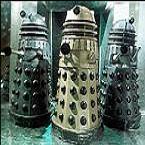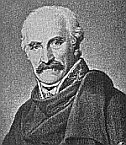Reiryc
Posts: 4991
Joined: 1/5/2001
Status: offline

|
"ALL games are based on a grid of something, the question is not "hexes or no hexes" but what is the best denisty (or granularity) for that grid. Hexes are normally based on the area of ground a unit can control and allows abstraction of the precise location of the unit with in the hex. (zones of control extend this "tactical mobility" beyond a hex). This is MORE realistic, in context, than only portraying a unit as occupying the space its men extend to and trying to depict the detailed kinematics (that are typically neither controlled, not understood, precisely."
Yes everything is on some form of grid due to the need for the computer to understand where its units are at any one time. A computer can not "understand" the concept of a man standing by a tree next to the river 'over yonder' the way a human can.
I do disagree that a hex zone of control is more realistic than no zone of control. A zone of control is what? It's basically a way that a game, not real life, but a game, reflects difficulty in disengaging and moving laterally along a frontage. Well what is this zone of control? It's enemy contact, it an exchange of fire on a small scale, it's something that's often intangible. This zone of control is however, a 'gamey' feature. It does not portray the reality of a frontage of 2 forces facing each other. I've yet to read anything that suggests that a general could not disengage from an enemy because his zone of control stopped him, so he had to go back one hex and then over 1 hex and back up so he could make some form of lateral move.
"THe point I take most serious umbrage with is the idea that "closer to 1:1 is more realistic". That assumes that we can model, indeatil the kinematics of the battlefield.
We can't, and likley never will."
You may not be able to model it perfectly, but each step towards a 1:1 is a step towards more realism assuming that each step does not create problems of their own along the way. In general however, the closer one gets to 1 inch = 1 inch the closer we get to a more realistic simulation. This is NOT to say that only such a 1:1 detail will provide more realism as other things are needed as well, but it will a more realistic framework with which to fight in.
Whether or not it will ever happen is based mostly upon technology...my feeling is that it will happen but probably much later if at all in our lifetimes.
"In reality a platoon taken under fire can spend that long just resuming movement! But having units pinned ofr 20 or 30 turns is hardly condusive to a fun game, so "time dilation" is assumed. Once you assume "time dialtion" then the game is no longer 1:1 and the "realism" of 1:1 game mechanics are disproved."
No it is not disproved. It is shown to be "not fun" and that is the difference. As you have pointed out, being pinned for 20-30 turns (minutes in real time) is not fun for the player. Hence dilution often comes into play. It does not however have to be the case if someone designs a situation that removes any time dilution...maybe a military simulator for the US Army or something?
"So my "short" but long-winded point is that hexes or turns don't "Make a game unrealistic" any more than lack thereof makes it "realistic". ITs how they are integrated into the game concept and how the game mecanics allow course of the battle (at whatever level) to be accurately (or inaccurately) portrayed."
I still disagree. The mere fact a hex exists is due to limitations in controling pieces in a way that would allow for a 2 player board game in a structured environment. Each "game mechanic" as you call it is nothing more than some form of abstract method to provide a 'gamey' control so as to provide a method of play. This is unrealistic in and of itself. Each and every factor relegated to some game mechanic further pulls the game/simulation from reality. In reality, there are no 'game mechanics' that control what a unit (brigade/division/whatever) can do or represents.
"The same is true of higher level games. Uncommon Valor is a "hex based, turn based" game that I challenge anyone to demonstrate would be significantly enhanced by eliminating its hexes, or abandoning turns."
Enhanced in what form? Realism of fun playability? When I see real life controled in the form of turns, then I will say a turn based game represents reality... Due to the operational nature of UV, it has to be turn based or hyperaccelerated if continuous time. Who would have fun actually playing an operational game in which 1 second in game time = 1 second in real life time? I don't think anyone will argue it would be more fun, but more realistic, yes I think so.
"BOTH hex-based, turnbased games, and hexless, turnless games have a future."
Absolutely...like bureaucracy, once the genie is out of the bottle, one would have a hell of a time putting it back in. Hex based games, since their inception has continued to gain a following. So much so, that many can not or will not conceptualize a game being fun without them. Those people love being able to 'count hexes' with as much time as they want. Providing themselves with as much time as is needed to count and calculate each and every piece move and counter to those move. This is fun...but imho it's not very realistic.
Reiryc
ps...and btw...I pre-ordered UV, bought desert fox, plan to buy close assault, combat leader, war in the pacific, napoleonic wars, and korusn pocket. Thus I am not against turn/hex based games...I just don't feel they represent reality more than a real time/hexless game.
_____________________________
|
 Printable Version
Printable Version












 New Messages
New Messages No New Messages
No New Messages Hot Topic w/ New Messages
Hot Topic w/ New Messages Hot Topic w/o New Messages
Hot Topic w/o New Messages Locked w/ New Messages
Locked w/ New Messages Locked w/o New Messages
Locked w/o New Messages Post New Thread
Post New Thread